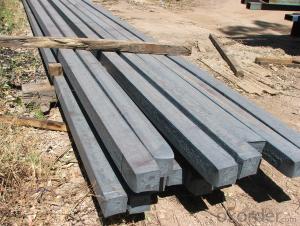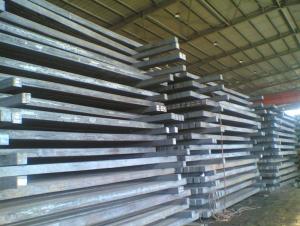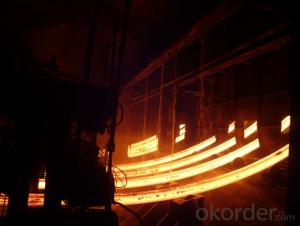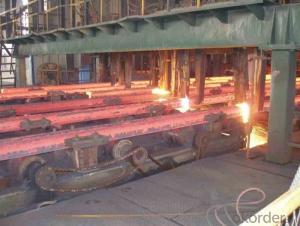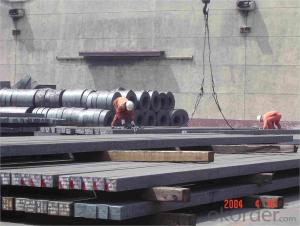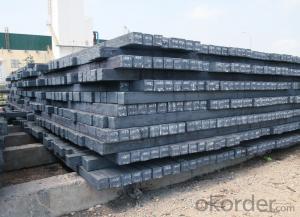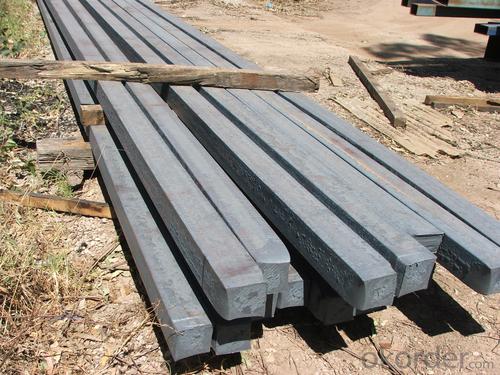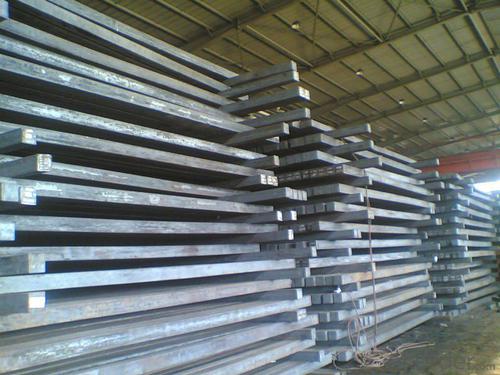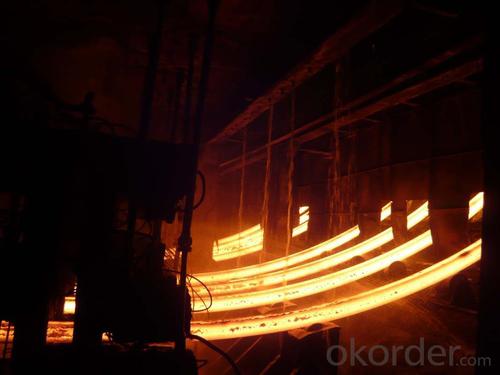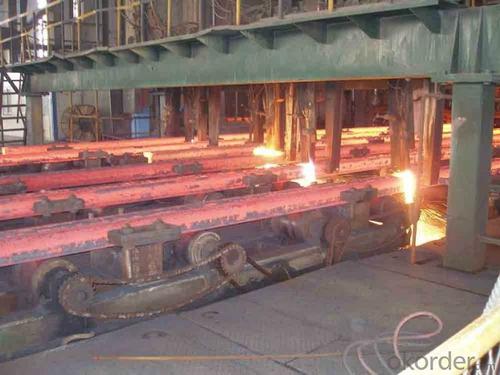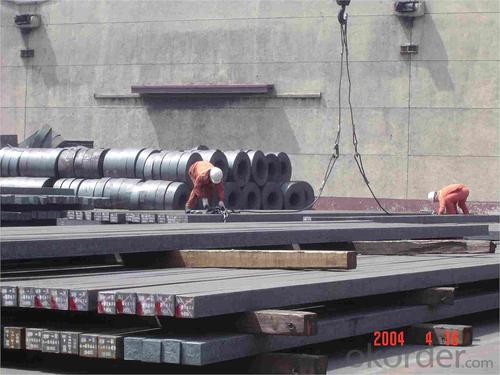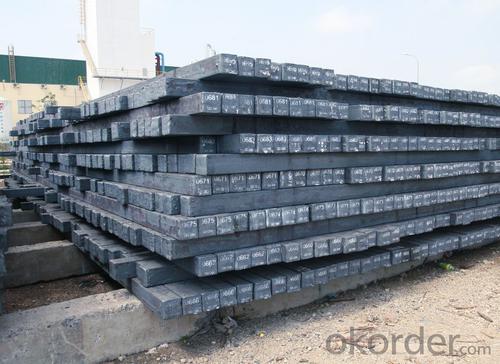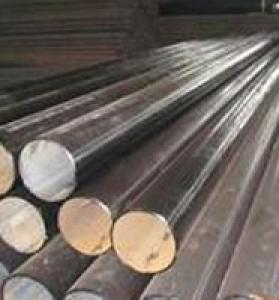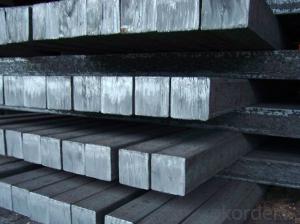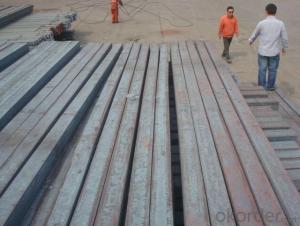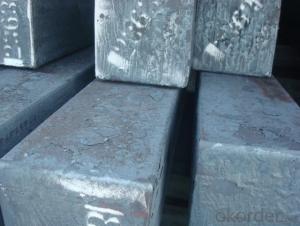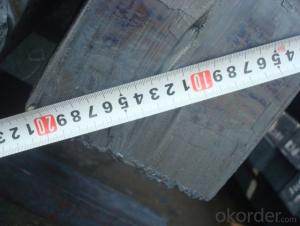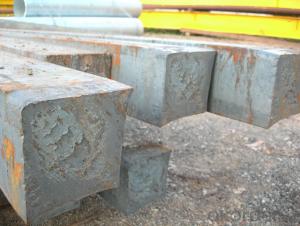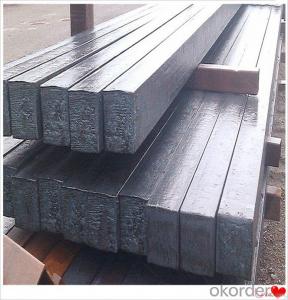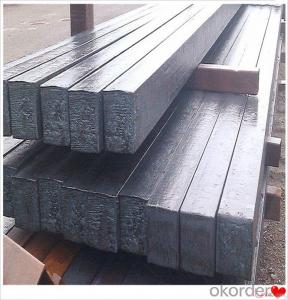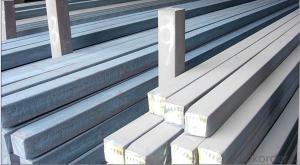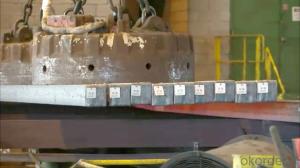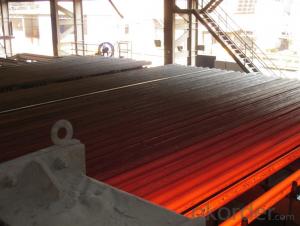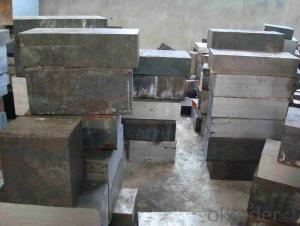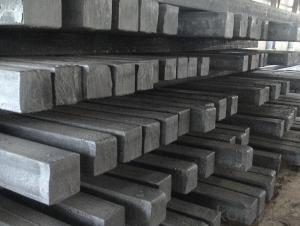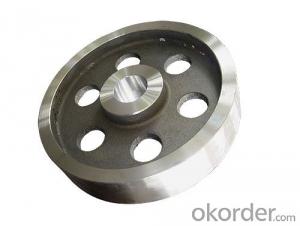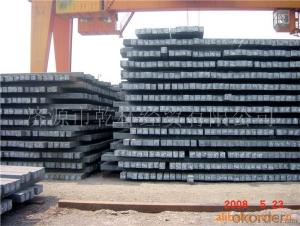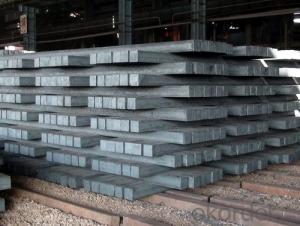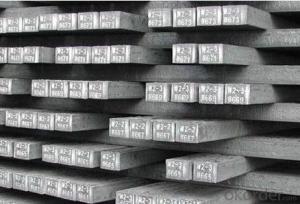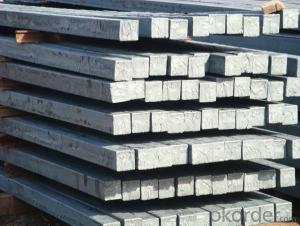Q235/3SP 180MM Blast Furnace Hot Rolled Steel Billet
- Loading Port:
- Tianjin
- Payment Terms:
- TT OR LC
- Min Order Qty:
- 2000 m.t.
- Supply Capability:
- 30000 m.t./month
OKorder Service Pledge
OKorder Financial Service
You Might Also Like
Description of Q235/3SP 180MM Blast Furnace Hot Rolled Steel Billet
Our hot dip galvanised steels consist of a steel substrate with a metallic zinc coating applied by means of a continuous hot dip galvanising process. Metallic zinc coatings are available in steel grades ranging from steel for bending and deep drawing applications, to structural steels and high yield strength steels.
A glossy surface finish obtained under specific skin-pass conditions (either non-skin-passed or skin- passed with smooth cylinders to obtain low roughness) can be provided if required at time of enquiry.
Advantage of Q235/3SP 180MM Blast Furnace Hot Rolled Steel Billet
Uncoated CR steel sheet With the features of in line with the international highest standards in demension and shape, excellent surface finish and properties, the products are mainly used in home appliance and automobile industries.
Galvanized steel sheet(include HDG and EG)
With the features of good corrosion resistance, the products are mainly used in automobile, home appliance, electronics, building and machinery manufacture industries, etc.
Precoated steel sheet With the features of enviromental protection and good processablility, long lasting surface durability, rich in colors, the products are maily used in building, home appliance and furniture industries, etc.
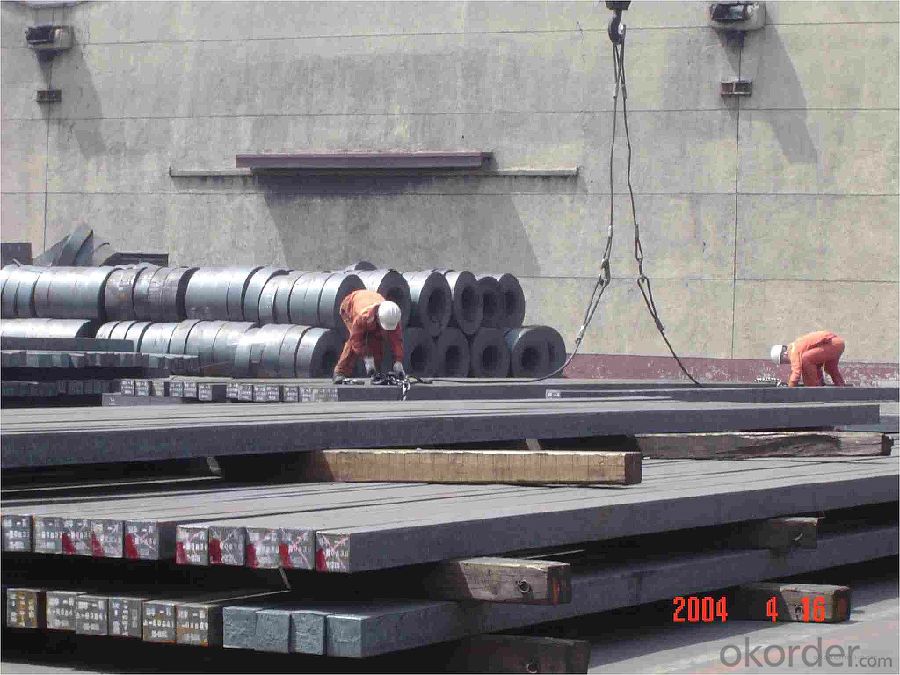
Applications of Q235/3SP 180MM Blast Furnace Hot Rolled Steel Billet
Our hot dip galvanised steels can be used in a very wide range of applications for industrial markets, both indoors and outdoors. Some of the most common applications are:
Building: wide sections for roofing and cladding, doors, door frames, metallic ceilings, partitions, structural members etc
Domestic appliances: all appliances for this sector (both white and brown goods) are manufactured with hot dip galvanised steels
Miscellaneous: electrical cabinets, aeraulic components, air conditioners, road signs etc
Zinc hot dip galvanised steel is suitable for contact with foodstuffs under certain conditions, as specified in European directive 89/109/EEC and French standard NF A 36-712-1. Please contact us for further information on this subject.
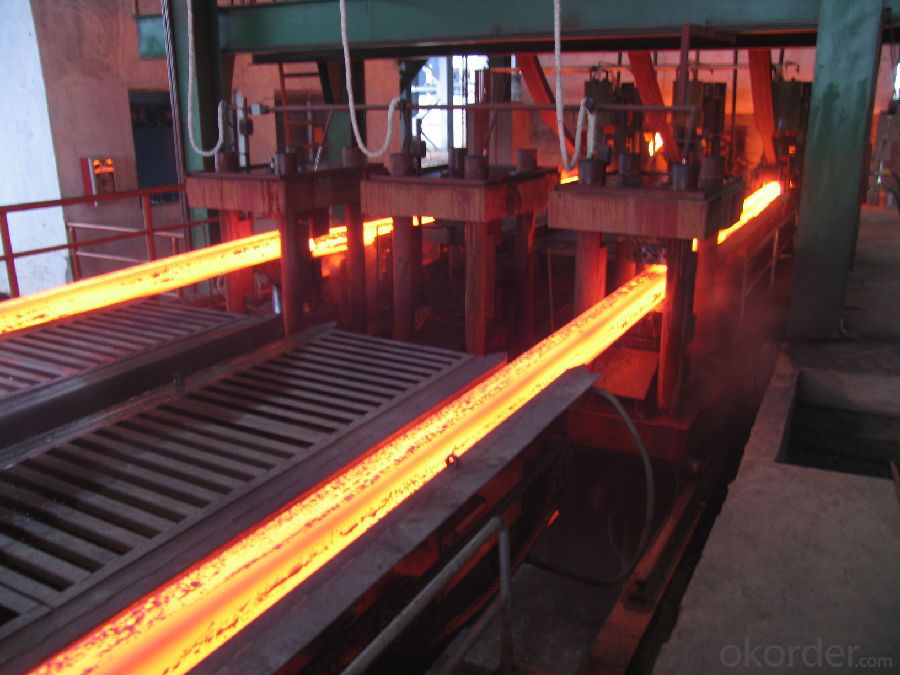
Specifications of Q235/3SP 180MM Blast Furnace Hot Rolled Steel Billet
Quality | Q/BQB 440-2003 | JIS G3312-1994 JIS G3321 | EN 10326-2004 | ASTM A653-02a |
EN 10327-2004 | (BASE PLATE) | |||
(BASE PLATE) | ||||
Commercial Steel | DC51D | SGCC SGLCC | DX51D+Z DX51D+AZ | CS Type A/B/C |
Forming Steel | St01,St02,St03 | SGCD1 SGLCD1 | FS Type A, Type B | |
Drawing | DC52D /DC53D | - | DX52D+Z DX52D+AZ | DDS TYPE A/C |
Steel | DX53D+Z DX53D+AZ | |||
Structural | S280GD (StE28) | SGC400 SGLC400 | S280D+Z DX54D+AZ | SS275 |
Steel | S350GD (StE34) | SGC440 SGLC440 | S350D+Z S350D+AZ | SS340 Class1 |
FAQ of Q235/3SP 180MM Blast Furnace Hot Rolled Steel Billet
We have organized several common questions for our clients,may help you sincerely:
1. How Can I Visit There?
Our company is located in Tianjin City, China, near Beijing. You can fly to Tianjin Airport Directly. All our clients, from home or aboard, are warmly welcome to visit us!
2. How Can I Get Some Sample?
We are honored to offer you sample.
3. Why choose CNBM?
Our delivery time about 15-20days for standard sizes, if you have other requirements like hardness, quanity and width ,it is about 20-40days. But don't worry we also try our best for the delivery time ,because time longer and our cost is higher.
- Q: How to purchase suitable billet heating furnace
- Choice can not be blind, you can not just look at the price, the choice of advice you consult more manufacturers, and then use the exclusion method to determine your final goal. Online can take a look at live video, more reference.
- Q: How are steel billets used in the manufacturing of forgings?
- Steel billets are an essential raw material in the manufacturing of forgings. These billets, which are semi-finished steel products, are used as the starting point for shaping and forming various types of forgings. The process begins with the selection of appropriate steel billets based on their chemical composition and mechanical properties. The billets are typically made from high-quality carbon or alloy steel and are carefully inspected to ensure their suitability for the desired end product. Once the billets are selected, they undergo a series of heating and shaping operations. The billets are heated to a specific temperature, known as the forging temperature, in a furnace to make them more malleable. This temperature is carefully controlled to ensure optimal plasticity and minimize any potential defects. After reaching the forging temperature, the billets are transferred to a forging press or hammer. These powerful machines apply immense pressure to shape the billet into the desired form. The force exerted by the press or hammer causes the billet to deform and take on the shape of the die or mold being used. The forged billet may undergo several additional steps, such as trimming, piercing, or machining, to achieve the final desired shape. These steps are necessary to remove any excess material or refine the forged part further. Throughout the manufacturing process, the quality of the steel billets plays a crucial role in determining the final quality of the forgings. The billets must have consistent chemical composition, mechanical properties, and freedom from defects. This ensures that the forged parts have the desired strength, durability, and dimensional accuracy. In summary, steel billets are used in the manufacturing of forgings as the initial material that undergoes heating, shaping, and other processes to create the final forged part. The quality of the billets directly impacts the quality of the forgings, making the selection and inspection of billets a critical step in the overall manufacturing process.
- Q: How are steel billets used in the manufacturing of bars and rods?
- Steel billets are used as the raw material in the manufacturing of bars and rods. The billets are heated and then passed through a series of rollers to shape them into the desired size and shape. This process, known as hot rolling, increases the strength and durability of the steel, making it suitable for various applications such as construction, automotive, and machinery industries.
- Q: Can steel billets be used for making architectural components?
- Yes, steel billets can be used for making architectural components. Steel billets are the raw material from which various steel products are formed, including architectural components such as beams, columns, and structural elements. The billets can be further processed through rolling, forging, or other techniques to create the desired shape and dimensions for architectural applications.
- Q: How do steel billets contribute to the overall corrosion protection of a structure?
- Steel billets contribute to the overall corrosion protection of a structure by being manufactured with specific chemical compositions and surface finishes that enhance their resistance to corrosion. These billets are used to produce corrosion-resistant steel products, such as beams, columns, and plates, which are then incorporated into the structure. The corrosion resistance of these steel products helps to prevent the formation and spread of rust, ensuring the longevity and durability of the structure.
- Q: How are steel billets used in the manufacturing of construction cranes?
- Steel billets are an essential component in the manufacturing of construction cranes. These billets, which are semi-finished metal forms, are typically made from molten steel that is cast into rectangular or square shapes. They are then further processed and transformed into various crane components. One crucial use of steel billets in the construction crane manufacturing process is for the production of structural elements. These billets are heated and rolled into long, slender beams or columns that form the backbone of the crane's structure. These beams provide the necessary strength and rigidity to support heavy loads and withstand the stresses encountered during crane operation. By using steel billets, manufacturers can ensure that the structural components of construction cranes possess the required durability and load-bearing capacity. Moreover, steel billets are also utilized in the production of crane boom sections. The boom is the extended arm of the crane that allows it to reach high elevations and transport heavy materials. Steel billets are reheated and shaped into cylindrical or rectangular sections, which are then welded together to form an elongated boom structure. The use of steel billets ensures that the boom sections have the necessary strength and stiffness to safely lift and maneuver heavy loads. Additionally, steel billets are employed in the manufacturing of other crane components such as pulleys, gears, and various fittings. These billets are forged, machined, or cast into the required shapes and sizes to create the intricate parts that enable the crane to function smoothly and efficiently. The high strength and versatility of steel make it an ideal material for these critical components. In summary, steel billets play a vital role in the manufacturing of construction cranes by providing the necessary raw material for the production of structural elements, boom sections, and other crucial components. Their strength, durability, and versatility make them an ideal choice for constructing cranes that can handle heavy loads and withstand the demanding conditions of construction sites.
- Q: How are steel billets reheated before rolling or forging?
- Steel billets are reheated before rolling or forging by passing them through a furnace or a reheating furnace, which raises their temperature to a specific range. This process, known as billet reheating, is crucial as it improves the billets' malleability, making them easier to shape and work with during the subsequent rolling or forging operations.
- Q: How do steel billets contribute to the manufacturing of industrial equipment?
- The production of industrial equipment heavily relies on steel billets, which are essential for the manufacturing process. These semi-finished steel products are created through casting and act as the raw material for a wide range of industrial equipment. A key aspect of steel billets is their versatility, which greatly contributes to the manufacturing of industrial equipment. They possess both malleability and strength, allowing them to be easily shaped and molded into various forms, such as bars, rods, or sheets. This adaptability enables manufacturers to produce durable and reliable components and structures capable of withstanding heavy loads and extreme conditions. Furthermore, steel billets offer an impressive strength-to-weight ratio, making them particularly suitable for applications where reducing weight is crucial without compromising structural integrity. This quality proves beneficial for industrial equipment that requires frequent transportation or movement, as the use of lightweight steel billets optimizes efficiency and minimizes energy consumption. Additionally, steel billets play a significant role in protecting industrial equipment against corrosion and wear. Many industrial environments expose equipment to harsh conditions, including moisture, chemicals, and abrasion. The utilization of steel billets ensures that the equipment remains resistant to these challenges, reducing maintenance and replacement costs while maintaining performance over time. Moreover, steel billets facilitate efficient heat treatment processes during the manufacturing of industrial equipment. Through controlled heating and cooling procedures, manufacturers can enhance the mechanical properties of the steel, such as hardness, toughness, and ductility. This enables the production of equipment capable of withstanding high temperatures, extreme pressures, and dynamic loading conditions, ensuring safety and reliability across various industrial applications. In conclusion, the role of steel billets in the manufacturing of industrial equipment is indispensable. Their versatility, strength-to-weight ratio, corrosion resistance, and facilitation of heat treatment processes contribute to the creation of durable, reliable, and high-performance equipment capable of meeting the demands of diverse industries.
- Q: How do steel billets come out?
- Three, steel rolling:Rolling steel or continuous casting billet into various steels by rolling mill
- Q: What are the different types of steel billet forging machines?
- Today in the market, one can find various steel billet forging machines. These machines are designed to efficiently shape and form steel billets into desired sizes and shapes. Below are some commonly used types: 1. Hydraulic Forging Press: These machines utilize hydraulic power to exert force on the steel billet, allowing it to be forged into the desired shape. Known for their versatility and high force capabilities, hydraulic forging presses can handle different sizes of billets. 2. Mechanical Forging Press: These machines rely on mechanical power, such as flywheels or eccentric mechanisms, to apply force to the billet. They are known for their precision and reliability, making them suitable for high-volume production. 3. Screw Press: Screw presses make use of a rotating screw mechanism to apply force to the steel billet. They operate at high speeds and are energy-efficient. Screw presses are commonly used for forging small to medium-sized billets. 4. Hammer Forging Machine: This type of machine uses a hammering action to shape the steel billet. There are different types of hammer forging machines, including steam hammers, air hammers, and hydraulic hammers. Due to their high impact force, they are ideal for heavy-duty forging. 5. Upsetter: Upsetters, also known as upsetting machines, are specifically designed for forging the ends of steel billets. They use a vertical or horizontal ram to apply pressure, causing the billet to increase in diameter and length. Upsetters are commonly used for producing forged components with thickened ends. 6. Radial Forging Machine: Radial forging machines employ a rotating roller to apply radial force to the steel billet. This force increases the diameter of the billet while maintaining its original length. Radial forging machines are often used for producing seamless rings and other cylindrical components. It is important to consider factors such as billet size and shape, desired production volume, and specific product requirements when selecting the most suitable steel billet forging machine. Each type of machine has its own advantages and limitations, so careful consideration is necessary for the best choice.
Send your message to us
Q235/3SP 180MM Blast Furnace Hot Rolled Steel Billet
- Loading Port:
- Tianjin
- Payment Terms:
- TT OR LC
- Min Order Qty:
- 2000 m.t.
- Supply Capability:
- 30000 m.t./month
OKorder Service Pledge
OKorder Financial Service
Similar products
Hot products
Hot Searches
Related keywords
